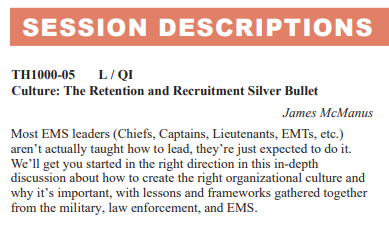|
By Kristof Toth
There are various kinds of leaders and leadership styles, ranging from democratic to situational leadership. Leaders are an essential to the community in the modern ages, so let's take a look at one of the most unique ones: servant leadership. So, what is Servant Leadership? Unlike in a traditional top-down leadership approach where a team is seen to serve the needs of a leader, in a Servant Leadership system it's the other way around. A Servant Leader cares for his/her team’s well-being before their own, and a Servant Leader acknowledges the opinions and concerns of their teammates. A servant-type leader can be highly beneficial for a team and for the connection between employees and employers. Servant Leaders prioritize the overall well-being of the team, which then leads to an overall better organizational culture, which will make people more open to communicating and working together. The concept of Servant Leadership was written and popularized by Robert K. Greenleaf in the 1970s. According to Greenleaf, a Servant Leader is someone who “begins with the natural feeling that one wants to serve, [and] to serve first.” This type of leadership aims and focuses on collaboration, trust, and understanding. Core Principles of Servant Leadership 1. Know your team - Do you know your team well enough? their personalities, backgrounds, goals and aspirations, strengths and weaknesses? It is important to know our team, especially when we are in a work environment. 2. Put your team first - Are you paying enough attention to your team? Listen to their advice and feedback and cascade control downwards in the organization. Communication and cooperation is essential when it comes to maintaining a healthy workspace. 3. Make decisions predictably - Apply the same principles (core values, purpose) when making decisions and encourage team members to make decisions on their own. Letting team members and/or co workers do certain things by themselves, will help to prevent micromanagement. These three points build trust and empower team members, and also prevent the “Suffocation Spiral.” Servant Leadership is not just a concept, but a practical approach towards the culture, feelings, and well-being of a team. Servant Leadership is really good for fostering connections between team members and leaders and improving the working morale of employees compared to other leadership styles. This leadership style reminds us that true leadership stems from a desire to serve, and that from such service, a positive organizational culture can emerge.
0 Comments
The field of Emergency Medical Services (EMS) is constantly evolving, with new technologies, techniques, and best practices emerging each year. In this dynamic landscape, one of the most effective ways to make a significant impact and contribute to the advancement of EMS is by presenting a high-quality, cutting-edge presentation at the National Conference on EMS. This annual event provides a unique platform for EMS professionals to showcase their innovations, research, and expertise, and it offers a myriad of benefits for those who take full advantage of the opportunity. AND WE'VE BEEN TWICE SO FAR! First in 2021, Coach James McManus presented "Interacting with Pediatric Patients" which introduced EMTs and other EMS professionals to the framework CLT: Control, Level, Teach. After the conference, the presentation was expanded into a 3-CEU class of the same name, in which participants get engaging training with slews of best practices they can apply tomorrow.  This year in 2023, he presented "Culture: The Retention and Recruitment Silver Bullet," the description was as follows: "Most EMS leaders (Chiefs, Captains, Lieutenants, EMTs, etc.) aren't actually taught how to lead, they're just expected to do it. We'll get you started in the right direction in this in-depth discussion about how to create the right organizational culture and why it's important, with lessons and frameworks gathered together from the military, law enforcement, and EMS." These courses are coordinated through EMP Training, so if you'd like to host or take one of these courses, reach out to them at [email protected]! The pace of compressions during CPR is 100-120 compressions per minute (cpm). The song most traditionally associated with CPR is the 1977 song "Stayin' Alive" by the Bee Gees, which has a tempo of 103ish beats per minute (bpm). That tempo (coupled with the obvious relevance of the title towards saving someone's life) makes it easy to remember and teach!
It's certainly very good to use, but it might not be the BEST song for a few reasons:
Below we've got our list of proposed "new" songs to do CPR to, and you will not believe the best choice to replace "Stayin' Alive" in terms of tempo, topic (relevant to CPR), and popularity!  CPR guidelines recommend 30 chest compressions followed by 2 breaths as one cycle. The reason for this specific number is based on a lot of factors, including physiological considerations and research conducted on CPR guidelines throughout the last 75 years. The recommendation for 30 compressions in each cycle has evolved over time based on research and feedback from medical professionals (which is still ongoing). For example, the American Heart Association first recommended 15 compressions followed by 2 breaths in 1966, and later in the 1970s changed it to 5 compressions followed by 1 breath for 2 rescuers. The current recommendation of 30 compressions followed by 2 breaths was adopted in 2005 and has remained the standard since then, although the rate of compressions has changed to its current 100-120 cpm (compressions per minute). Compressions squeeze the heart and pump oxygenated blood throughout the body's organs and (crucially) the brain. Proper compression depth and rate is important to adequately squeeze the heart so that blood actually pumps around the body. But why group them into sets of 30?  Artificial Intelligence (AI) has come a long way in the last decade and it has changed the way we live and work. From automation to personal assistants, AI has made our lives easier and more efficient. However, like any other technology, AI can also be used for negative purposes. One such example is using AI to cheat. Cheating is unethical and it undermines the integrity of the system. Using AI to cheat is not only unethical but also illegal in many cases. It is a form of academic dishonesty that undermines the value of education and is harmful to the individual and the society as a whole. When students use AI to cheat on exams, they are not only cheating themselves but also the educational system. They are not learning the material, they are not developing critical thinking skills, and they are not preparing themselves for the future. They are simply taking shortcuts that will not help them in the long run.  Hint: This is a terrible first aid kit... Hint: This is a terrible first aid kit... Loads of first aid kits you find in stores are ridiculous, most of them include assorted sizes of bandages, like those little tiny spot Band-Aids that are no help in an emergency and are the only ones left over when you inevitably use up all the useful sizes. The first question you need to answer is, "What is the purpose of this first aid kit?" At the very least, you should be prepared for serious emergencies like severe bleeding, heart attacks, and broken bones. If you only have 5 things in your first aid kit, ideally the supplies you include should be helpful for multiple types of emergencies, unlike those ridiculously specific Band-Aids. Side note: the best kind of Band-Aids (if you were going to include a 6th item) are the Flexible Fabric kind! Remember, don't worry about getting lots of different sizes. Applications for colleges and jobs require letters of recommendation, often from teachers, coaches, or mentors. Writing LoRs (not Lord of the Rings) can be daunting. Writing a killer LoR is even more daunting.
What should LoRs do, contain, look like, etc.? Let's think logically... LoRs are used by the recipients (schools, employers) to judge the character of applicants and get a more complete picture of their life. Starting from here and thinking logically, there are a few things we can learn about LoRs:
Now we kind of know big-picture what letters should be, let's look at structure and content. We're excited to announce a partnership with the educational YouTube channel The Oxford Observer!
Look out for a series of videos coming up on The Constitution (and why it is the way it is) and how to write essays (for college, school, or anything else!). Check out The Oxford Observer on YouTube or their website! A lot of high schoolers are beginning to look at colleges around this time of year. Before you get too invested in the process, check with your family, teachers, etc. to see if college is right for you! With graduation rates plummeting and costs soaring, attending college is no longer the no-brainer it once was.
Choosing the right college can be tough! There are a lot of factors involved, like location, size, cost, Greek life, etc. With all of these factors weighing on their minds, most students who are set on going to college will probably fail to ask the 4 most important questions. Take it from a college recruiter; THESE are the questions to ask! College application season is in full swing. It might seem like the hard part is getting INTO college, but the harder part is what happens when you get there! Don't take our word for it, check out what advice these college students had to give to perspective college students and for all students who want to go to college. Spoiler alert: Their lessons also apply in high school and to the "real world"!  “In my first semester at college, I learned a lot about adjusting to college and my new environment. With having hybrid classes the whole semester, it was certainly challenging at some points but overall I figured it out. There were some specific things that I did that really helped me succeed. The first thing was making separate email folders for each class I was taking. I got a lot of emails from professors, and to have all of them organized by class really helped me locate an old email and stay on top of deadlines. The next thing was I hand wrote all of my notes in class. This was a preference thing for me, but I truly believe that I retain more from a lecture if I hand write notes. It was also challenging for me to type notes while on a zoom lecture. The last thing I did was very hard for me: relax. College can be very stressful, and if it isn’t I don’t think you will get better as a person. Sometimes the only thing you can do is just take a deep breath, relax, and simplify things. I am not saying that doing these three things will guarantee you a 4.0 GPA, I am just sharing my advice and stating what helped me succeed in my first semester.” - CJ, Freshman at Fairfield University “One of the greatest realizations in my transition from high school to collegiate life, is that one has the tremendous opportunity to enter into a new environment and become the most comfortable version of themselves. This “clean slate,” if you will, enables young people to step outside of the numerous stigmas and intangible rules of teenage sociology and develop into the individuals that they were always meant to be. It is because of this observed truth that I strongly suggest, to all students moving on to any college or university, to take advantage of the extremely rare opportunity that higher education offers. I will never forget the moment when one of my dearest family members told me, “college is one of the last times in life that you can actually determine for yourself where you would like to continue on in your future.” He emphasized that once in the real world, chances to continue on in life, in a chosen location, do not often present themselves. In preparing for the real world myself, this is some of the best advice that I had ever received as a teenager and I wish to pass it on.” - Liam, Junior at Seton Hall University “Time management is the best piece of advice I could give. If you take time aside to allocate to school I can promise you that you will have time to spend with friends. Try to establish routines for when you do homework. Throw your phone across the room, go to the library etc. No one is going to hold your hand anymore and you need to be your own voice. You need to advocate for yourself.” - Ryan, Freshman at Fairfield University “The only advice I could give is that especially for online students you have a lot more free time than you think! When you are in your classes put the phone away and actually focus because they are very distracting and you have all the time in the world to do whatever you want after your classes.” - Max, Freshman at Rutgers University |
AuthorsOur coaches are working hard gaining experience and putting together resources to help YOU!
NOTE: All of our College Success tips work for ANY level of school!
Archives
July 2024
Categories
All
|



 RSS Feed
RSS Feed